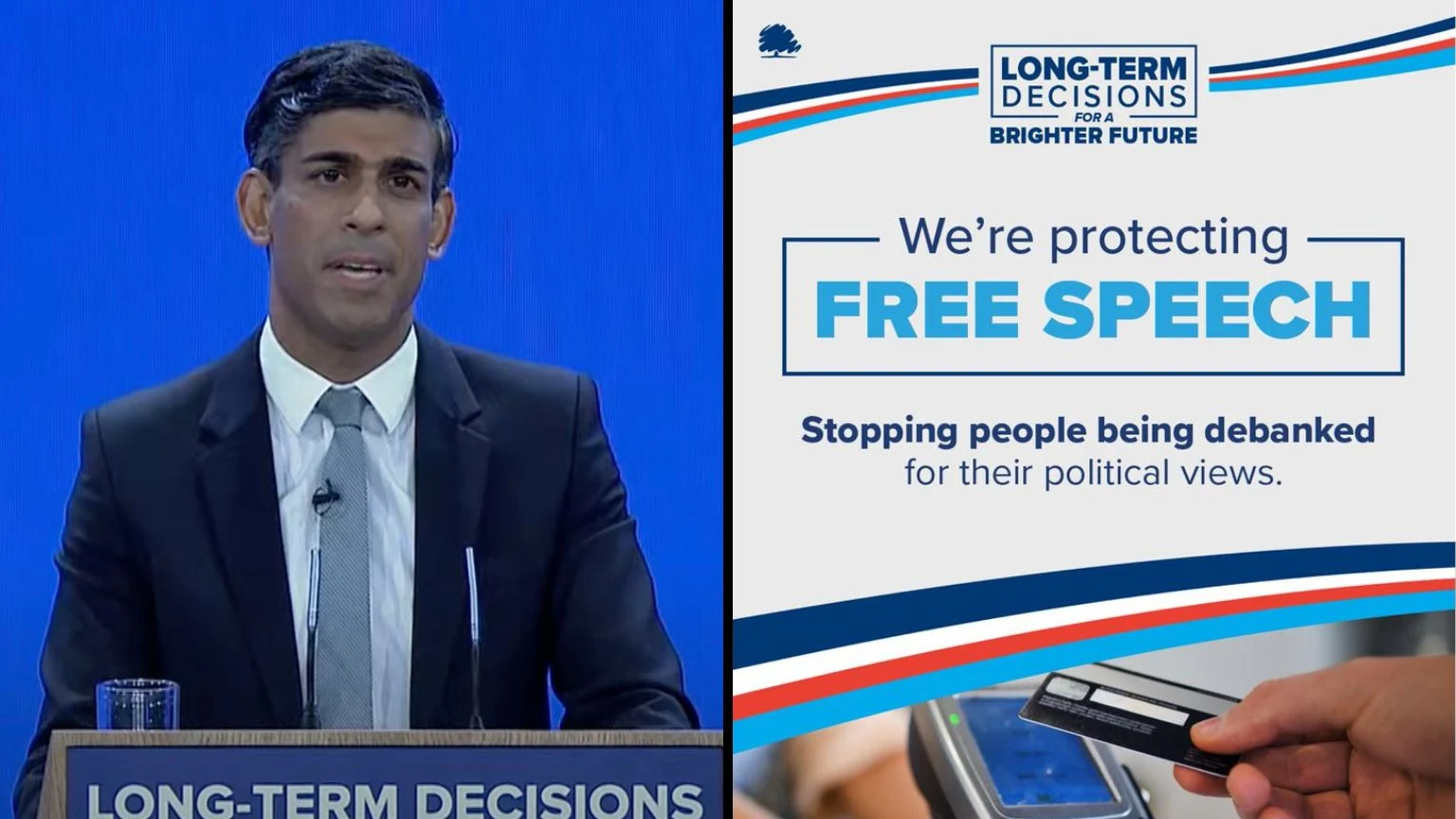In a world where free speech and online safety collide, can the UK's Conservative Party successfully balance the scales? As they grapple with debanking based on political views and the controversial Online Safety Bill, the question remains: Is free speech on the line in the UK? More on this below. Keep reading!
In recent developments, the UK's Conservative Party appears to be walking a tightrope between advocating for free speech and introducing measures that could potentially infringe upon it. This article delves into the apparent contradiction between safeguarding citizens' right to express their opinions openly and the government's efforts to implement the Online Safety Bill, which has raised concerns about its impact on free speech.
Debanking and Political Views
One of the key issues at the heart of this debate is the practice of "debanking," which involves financial institutions cutting off individuals from their services and closing their accounts due to their publicly expressed political views. Finance Minister Jeremy Hunt recently announced a plan to impose stricter regulations on banks to prevent such actions.
The government's stance, as voiced by Hunt during the Conservative conference in Manchester, is clear: "nobody should have their bank account closed because somebody else decides they're not politically correct." This move aims to protect individuals from being financially penalized for their political beliefs, a commendable step towards safeguarding free speech.
However, the underlying concern remains: why was such a move necessary in the first place? The need for tighter regulations implies that there have been instances where individuals faced debanking due to their political views, highlighting a contradiction within the government's approach to free speech.
The Online Safety Bill
In contrast to the government's stance on debanking, the Online Safety Bill has garnered criticism for its potential impact on free speech. Civil rights groups, including the Open Rights Group (ORG), have raised serious concerns about this legislation.
According to ORG, the Online Safety Bill poses a significant threat to privacy and freedom of expression. It is seen as a piece of legislation that ostensibly aims to protect young people online but could, in reality, facilitate censorship and mass surveillance. This contradiction is alarming as it could undermine the very principles of free speech and individual privacy that the government claims to uphold.
The Concerns Surrounding the Bill
The core issue with the Online Safety Bill lies in its provisions for scanning private messages. Critics argue that implementing such measures safely is a daunting challenge. They believe that these powers, originally intended to protect, could easily be misused in a manner more fitting for an authoritarian regime than a democracy.
James Baker, Campaigns Manager at ORG, expressed his concerns, stating that this legislation could have severe implications for various groups, including journalists, whistleblowers, domestic violence victims, and children who rely on secure communications to protect themselves from online threats.
Hot Take: In this intricate dance between freedom of expression and digital safety, it seems the UK might need a few more dance lessons before hitting the perfect stride. Balancing act or wobbly tightrope walk? You decide!
Is this content hitting the mark for you? If so, consider supporting my work—buy me a virtual coffee! ☕ Your support keeps the ideas flowing. Thanks so much! 🙏 Please Contribute via GoGetFunding



